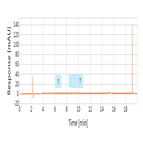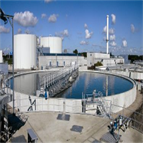Find methods for your needs
Refine by Feature
Displaying 1-5 of 8 results for Tag: Endocrine disruptor
AB801: Automated Solid-Phase Extraction (SPE) of Endocrine Disruptors in Water
Instrument Type: Automated Sample PrepEndocrine disrupting compounds (EDCs) include a wide range of compounds that have the potential to interfere with the body’s endocrine system. Drinking water supplies need to be tested for the presence of EDCs because of their effect on hormones. The solid-phase extraction (SPE) method described in this Application Brief provides provides a quick and simple means of concentrating the components using controlled flow rates and volumes that will consistently produce good recoveries.
Quantitative Comparison of Hormones in Drinking Water Between MS/MS and Orbitrap Technology
Instrument Type: LCMSMSWe present a a liquid chromatography – high-resolution, accurate mass (LC-HRAM) methodology using Orbitrap technology as a sensitive, accurate, and reliable alternative to the use of triple quadrupole mass spectrometers in the quantification of hormones in drinking water according to EPA guidelines. By using different scanning modes within the Q Exactive MS, quantitation on precursor ions and identification of fragments ions are possible. These scanning modes can possibly be used for compliance monitoring in place of a triple quadrupole MS.
TN148: Automated Extraction and Determination of Human Hormones in Drinking Water Using Solid-Phase Extraction and HPLC with UV Detection
Instrument Type: HPLCThis Technical Note describes the use of high-surface-area solid phase extraction (SPE) to extract seven human hormones from drinking water using the Dionex AutoTrace 280 SPE instrument. Extracts were subsequently quantified using high-performance liquid chromatography (HPLC) to determine the recovery.
Quantitative and Semi-Quantitative Determination of PPCPs and Their By-Products in Wastewater by Orbitrap MS
Instrument Type: LCMSPharmaceuticals and personal care products (PPCPs) and endocrine disrupting chemicals (EDCs) detected in surface and drinking waters, as well as in treated wastewater. They are an issue of increasing international attention due to potential environmental impacts. We developed an analytical method capable of determining PPCPs and their by-products in wastewater treatment plant (WWTP) samples. This workflow was applied in a survey of 35 permeate samples obtained from a pilot anaerobic membrane bioreactor (AnMBR).
Detection of Pharmaceuticals, Personal Care Products, and Pesticides in Water Resources by APCI-LC-MS/MS
Instrument Type: LCMSMSWe developed a simple method for the simultaneous determination of trace levels of compounds from a diverse group of pharmaceuticals, pesticides, and personal care products using SPE and liquid chromatography-tandem mass spectrometry (LC-MS/MS). We determined which selected substances are present in significant quantities in the water resources around the Montreal region.





